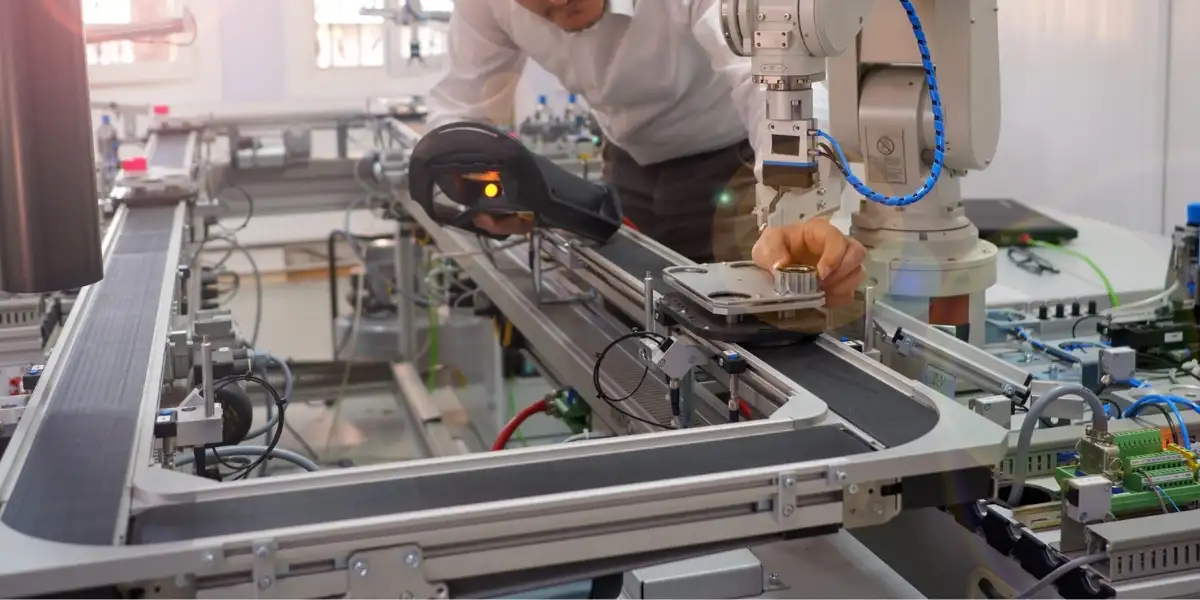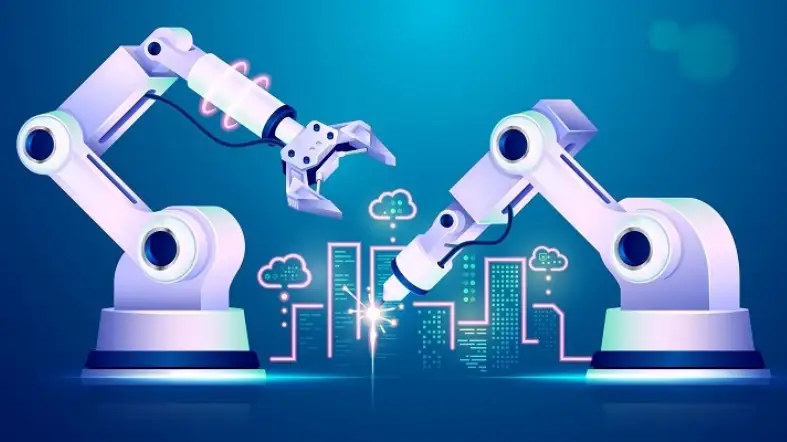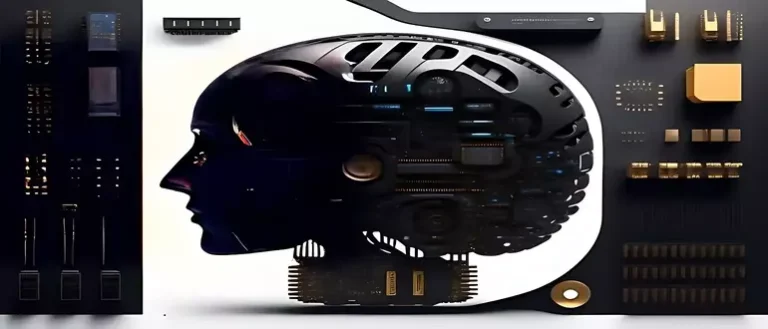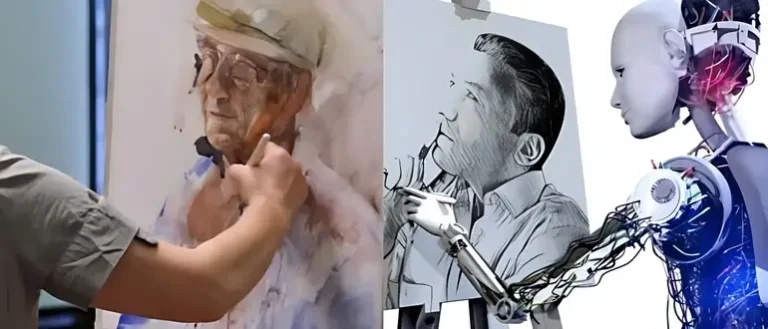As artificial intelligence (AI) continues to advance and transform various industries, many are wondering if it will eventually replace electrical engineers.
With AI already demonstrating impressive capabilities in tasks such as data analysis and automation, it’s a valid concern.
In this blog post, we’ll explore whether AI will replace electrical engineers, the limitations and potential impact of AI in this field, some examples of AI tools impacting this job sector, and the unique skills and expertise that electrical engineers bring to the table.

Will AI Replace Electrical Engineers?
No, it’s unlikely that AI will replace electrical engineers entirely. While there is some risk of automation, this occupation involves too many external factors to be fully replaced.
Modern technology, however, can improve their work. Despite slower-than-average job growth, there will still be over 20,100 opportunities annually during the following ten years.
How Will AI Impact The Job Market For Electrical Engineers?
Automated Testing and Quality Control:
With advancements in AI technology, automated testing and quality control checks on electrical systems will be possible.
Because of this, engineers will be able to rely on AI to make sure that their ideas are reliable and up to code.
AI may be used, for instance, to verify the effectiveness of sensors or to check the condition of electrical systems continuously.
Engineers will be able to concentrate on more difficult jobs because of the time and effort savings.
Increased Efficiency in Design and Simulation:
Engineers will also benefit from AI while designing and simulating electrical systems.
Machine learning algorithms may analyze large data sets to find trends and improve designs for effectiveness and performance.
Engineers may now design more intricate systems with greater precision and accuracy while using less time and money for testing and prototyping.
Reducing the Need for Manual Labor:
The demand for physical work will decline as AI replaces more duties in the field of electrical engineering. Tasks like data input, analysis, and testing fall under this category.
This could result in fewer openings for entry-level electrical engineers, but it will also open up new career prospects for people with experience in AI and machine learning.
Creating New Fields of Expertise:
Electrical engineering will gain new specialties in AI-powered design, modeling, and testing.
Therefore, engineers with expertise in AI and machine learning will be in high demand in the job market.
Cross-disciplinary abilities like an understanding of computer science and software development will be necessary for these new sectors of competence.
Enhancing Existing Job Roles:
Instead of replacing current positions in electrical engineering, AI will improve them.
AI may be used, for instance, to automate monotonous processes, freeing engineers to concentrate on more difficult and imaginative areas of their profession.
AI can also offer engineers real-time data and insights, enhancing their deliberation capacity.
Increasing the Demand for Electrical Engineers:
Electrical engineers will be in more demand overall as a result of AI. Electrical engineers with experience in AI and machine learning will be more in demand as AI technology spreads across a variety of sectors.
Accordingly, electrical engineers who stay current on the latest advancements in AI will be in high demand in the job market.
What Skills Will Electrical Engineers Need To Remain Competitive In The Age Of AI?

Machine Learning
Electrical engineers must master machine learning in the era of artificial intelligence.
Electrical engineers must be able to comprehend the operation of machine learning algorithms as they are used to evaluate data and create predictions.
This entails creating and putting into practice machine learning algorithms, as well as training them on huge datasets.
Electrical engineers must be knowledgeable in statistics and probability theory to create and evaluate machine learning models.
Data Analysis
In the era of AI, electrical engineers also need to become proficient in data analysis.
Electrical engineers must be able to evaluate massive datasets in order to get valuable insights given the growth of big data.
Data mining, data cleansing, and data visualization expertise are needed for this.
Additionally, structured and unstructured data must be able to be worked with by electrical engineers, and they must be able to create algorithms to process and analyze this data quickly.
Programming
Electrical engineers nowadays, in the age of AI, need to be proficient programmers.
They must be able to write code to create AI algorithms and apply them in various systems.
Programming languages like Python, C++, and Java competence is needed for this.
Tools and frameworks such as TensorFlow and PyTorch are commonly used in developing AI applications.
These software development tools and frameworks must be familiar to electrical engineers who work on creating such applications.
Communication
In the era of AI, communication is a crucial ability that is frequently disregarded. Communication skills with stakeholders, clients, and other engineers are essential for electrical engineers.
This comprises the ability to present data and outcomes in an organized, clear, and understandable way.
It also includes the ability to explain complicated technical topics in simple words.
In order to effectively interact with other experts, multidisciplinary teams that include electrical engineers must possess good communication abilities.
Creativity
For electrical engineers in the age of AI, creativity is a critical ability. The ability to think creatively and find novel solutions to challenging issues is a must for electrical engineers.
Technical know-how creative problem-solving abilities, and they are all needed for this.
Electrical engineers must be flexible in approaching issues from several angles and willing to try various strategies until they come up with a workable solution.
Example of AI Tools Currently Impacting In Electrical Engineering Job Industry?

IBM Watson
IBM Watson is a powerful AI tool used in electrical engineering to extract insights from large amounts of unstructured data.
Watson is particularly useful in quality control and risk management applications.
This tool can help electrical engineers make data-driven decisions by providing them with valuable insights that would be difficult to obtain through manual analysis.
MATLAB
Electrical engineering uses the computer language MATLAB for control design, condition monitoring, and predictive maintenance.
MATLAB features an AI toolbox. In applications involving signal processing and communication networks, MATLAB is well renowned for its adaptability.
Electrical engineers may simplify the process of generating and testing new ideas by using this application to automate difficult activities.
ANSYS Discovery
ANSYS Discovery is an AI-driven generative design tool used in electrical engineering.
This tool can automate the design process, resulting in optimized designs that reduce the need for physical prototyping.
ANSYS Discovery is particularly useful in designing electronic circuits and devices, helping engineers create innovative new products quickly and efficiently.
OpenNN
An open-source software library called OpenNN uses neural network technology to swiftly and reliably evaluate data.
This tool is very helpful in machine learning applications since it loads, analyzes, and trains models more quickly than its rivals.
OpenNN is adaptable and may be used for a variety of activities, including control design, condition monitoring, and predictive maintenance.
Deep Learning Studio
An AI-powered piece of software called Deep Learning Studio offers a GUI-based platform for creating deep learning models.
This tool streamlines the development process by automating many of the challenging activities required in creating deep learning models.
Applications like image identification and natural language processing benefit most from Deep Learning Studio.
TensorFlow
Google created the machine learning library known as TensorFlow. Electrical engineers frequently employ this tool for applications like data processing, picture recognition, and natural language processing.
TensorFlow is a popular option for machine learning projects of all kinds because of its scalability and versatility.
GPT-3
A cutting-edge AI tool for natural language processing is GPT-3. The creation of documentation, technical writing, and code may all be automated with this application.
Electrical engineers can generate reports and documentation more quickly and efficiently with GPT-3, which also reduces their workload.
What Are The Potential Drawbacks And Challenges Of Using AI In Electrical Engineering?

Complexity:
Electrical engineering’s use of AI systems has the potential to enhance system complexity greatly.
Advanced algorithms, hardware, and software are needed for AI systems, and their design and implementation may be difficult.
The likelihood of mistakes, faults, and system failures, which may be expensive and time-consuming to resolve, might rise due to this complexity.
Data quality:
The type and volume of data needed to train AI systems significantly impact how well they function.
The data used to train electrical engineering AI systems may be noisy, incomplete, or inconsistent, resulting in unreliable predictions and subpar performance.
Therefore, it is essential for the successful implementation of AI systems in electrical engineering to ensure the quality and accuracy of the data used in them.
Bias:
AI systems are susceptible to bias, which can result in unfair or discriminatory outcomes. In electrical engineering, bias can occur due to the uneven distribution of data, the design of algorithms, or the selection of features.
Bias in AI systems can lead to incorrect predictions, incorrect diagnosis of faults, or unfair energy distribution, which can have significant consequences.
Security:
The integration of AI systems into electrical engineering can pose security risks, as these systems may be vulnerable to cyber-attacks, data breaches, or hacking attempts.
Attackers can exploit vulnerabilities in AI systems to gain unauthorized access, steal sensitive data, or cause system failures.
Therefore, ensuring the security and privacy of AI systems is critical for their deployment in electrical engineering.
Human expertise:
AI systems can augment human expertise in electrical engineering by providing insights, optimizing processes, and automating tasks.
However, the reliance on AI systems can also lead to a reduced need for human expertise, which can result in skill degradation and knowledge loss.
Moreover, the lack of human oversight and control over AI systems can pose ethical and legal challenges.
FAQs
What Is The Role Of Electrical Engineers In The Development Of AI Technology?
Electrical engineers play a critical role in the development of AI technology by designing and building the hardware and systems necessary to support AI applications.
Can AI Completely Replace Electrical Engineers In The Field?
It is unlikely that AI will completely replace electrical engineers, as there will always be a need for human expertise in designing, developing, and maintaining complex electrical systems.
How Can AI Be Used To Improve The Work Of Electrical Engineers?
AI can be used to assist electrical engineers in their work by providing automated design tools, predictive maintenance, and real-time system monitoring capabilities.
Can AI Take Over Routine Tasks Currently Performed By Electrical Engineers?
AI can take over routine tasks such as data analysis and system monitoring, but it cannot replace the expertise of electrical engineers in designing and building complex systems.
What Are The Ethical Implications Of Using AI In Electrical Engineering?
The use of AI in electrical engineering raises ethical concerns related to issues such as job displacement, bias in algorithmic decision-making, and privacy concerns.
Conclusion
Even while AI is developing quickly, it is unlikely to replace electrical engineers entirely. These experts have essential knowledge and abilities that robots cannot duplicate.
However, AI can significantly improve their output, increasing their effectiveness and efficiency.
Therefore, it is crucial that electrical engineers seize the chances presented by AI and continue to advance their knowledge in tandem with this cutting-edge technology.





